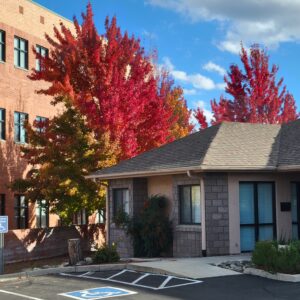Foreclosure
Foreclosure is the legal process by which a lender obtains legal title to real property which secures the loan made by the lender to the borrower. Our Prescott, AZ lawyer/s assist creditors with foreclosure matters. In Arizona, loans secured by real property are secured by either a mortgage, an agreement of sale, or more commonly, a deed of trust.
In Arizona, foreclosure is handled by one of two separate methods: a judicial foreclosure or a non-judicial foreclosure.
A default occurs when a borrower fails to pay on time or otherwise fails to perform as agreed. When a default occurs the lender enforces a legal right to recover the property. If the loan is secured by a mortgage, a judicial foreclosure is required under Arizona law. A judicial foreclosure is a lawsuit and is best handled by a lawyer experienced in litigation and real estate matters.
If the loan is secured by a deed of trust, a non-judicial foreclosure process may be used. This is known as exercising the power of sale. Many Arizona title and escrow companies handle non-judicial foreclosures. Sometimes, such as when there is a title problem or when there have been multiple defaults, a judicial foreclosure is appropriate for property where a deed of trust was used.
In a judicial foreclosure, the debtor has a “right of redemption.” This is the right to recover the property, for a limited period of time, after the judgment has been entered foreclosing the property. A judicial foreclosure will determine ownership rights and extinguish subordinate liens and encumbrances.
A bankruptcy proceeding is often used to stall, delay or prevent a foreclosure. If the mortgage or deed of trust was validly obtained, a bankruptcy will slow things down but cannot completely prevent a foreclosure. A lender must obtain permission from the Bankruptcy Court to proceed with a foreclosure. This permission is obtained by filing a motion to lift the automatic stay.
Foreclosure proceedings are either contested or uncontested. An uncontested proceeding is one in which neither the debtor(s) nor any subordinate lien holders object to the requested relief. A contested proceeding is one in which either the debtor(s) or a lien holder objects. If there is an objection, the necessary evidence must be gathered to overcome the objection. Sometimes, but not often, a short trial is necessary in order to determine what the facts are.
When a debtor defaults foreclosure proceedings should be initiated without untoward delay.

